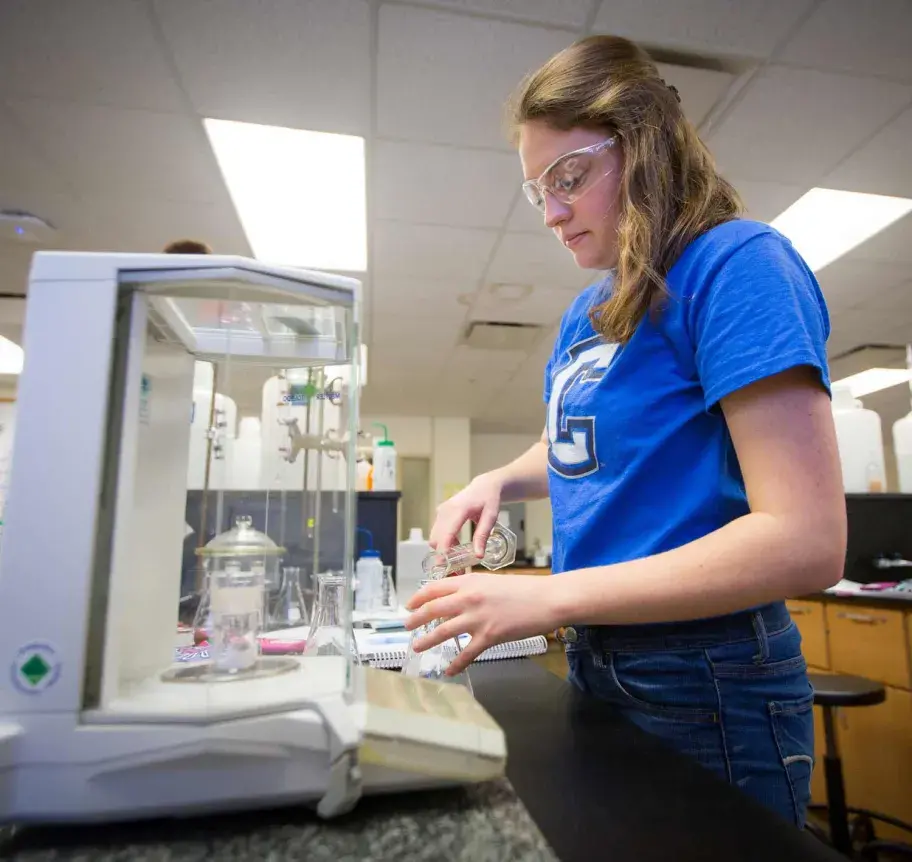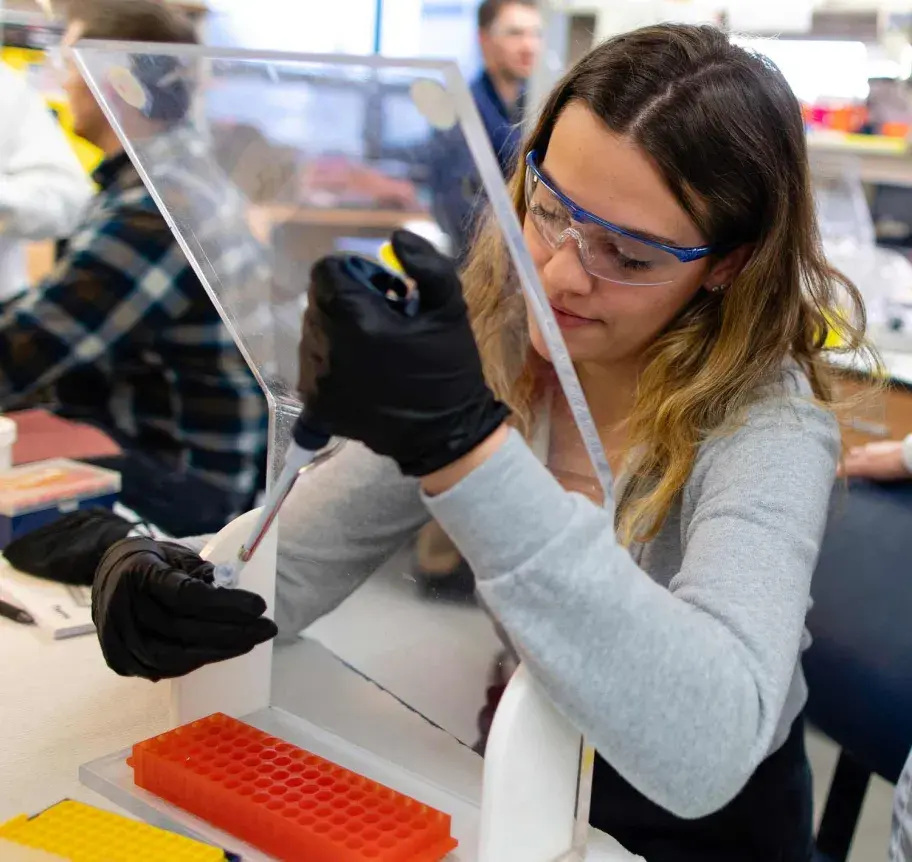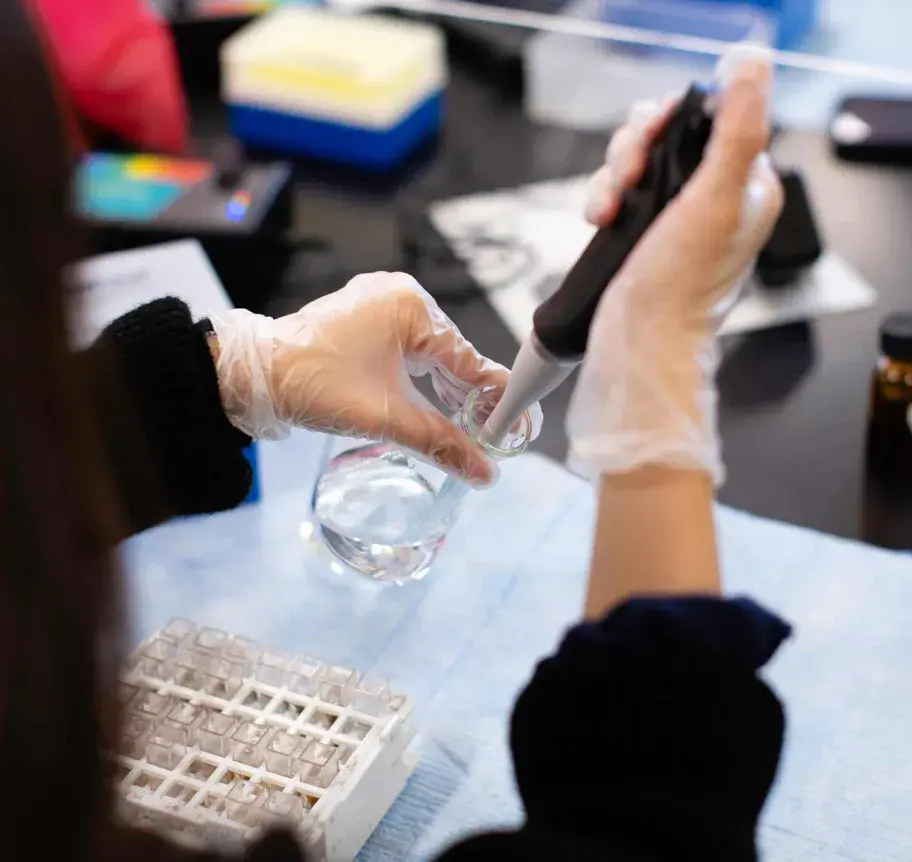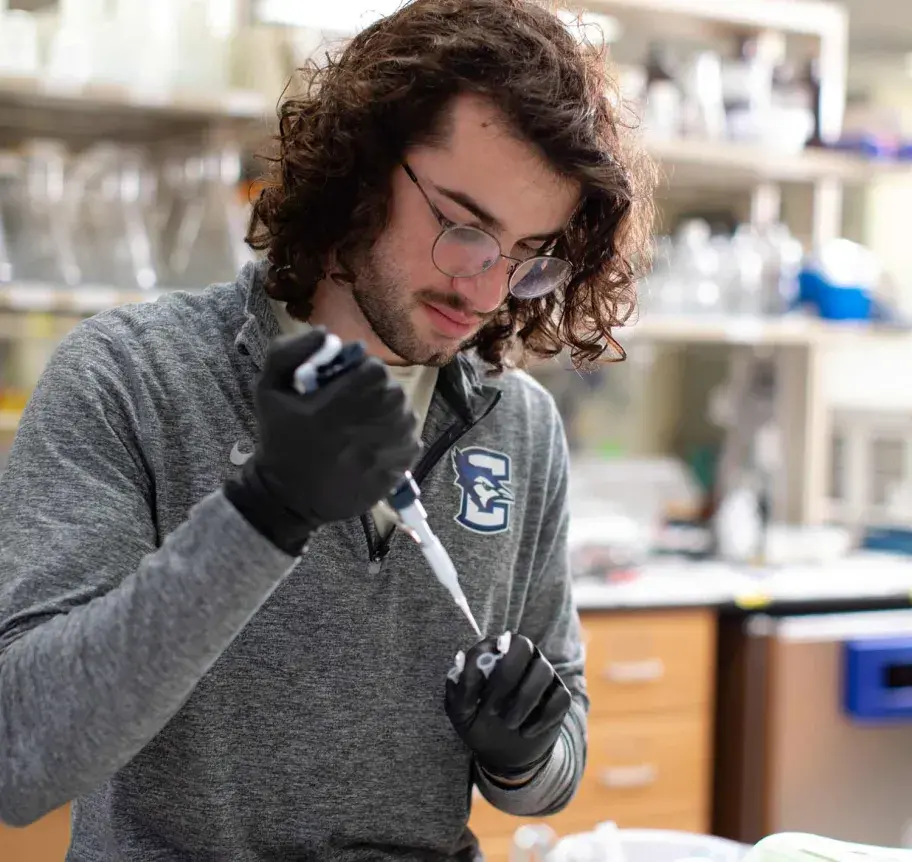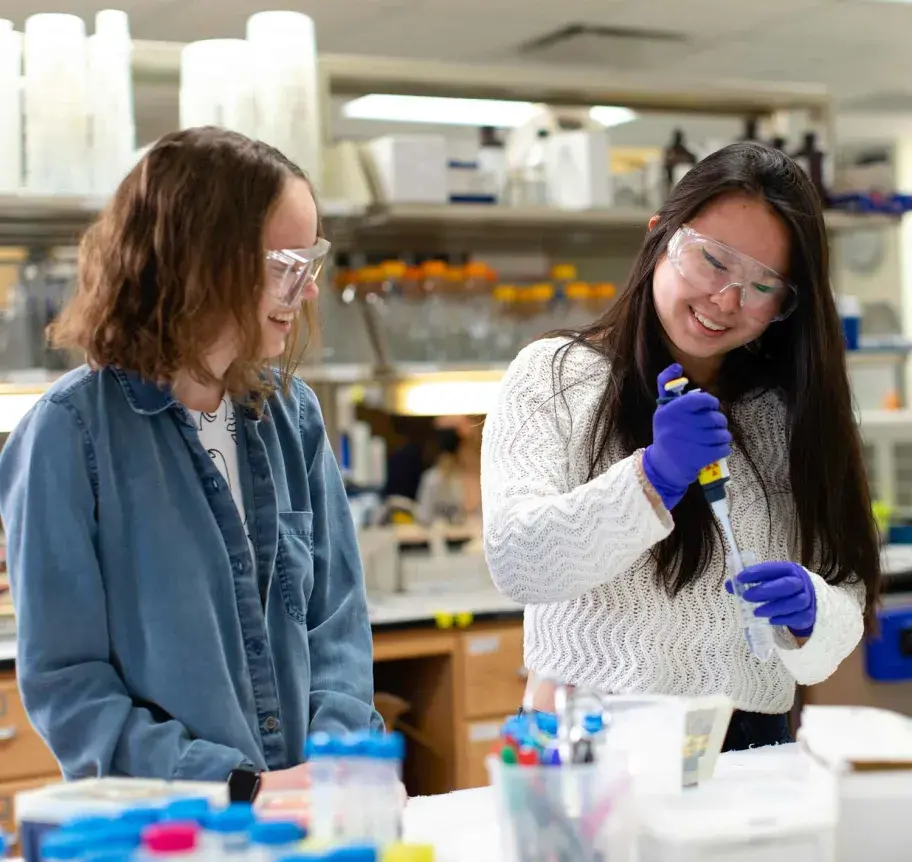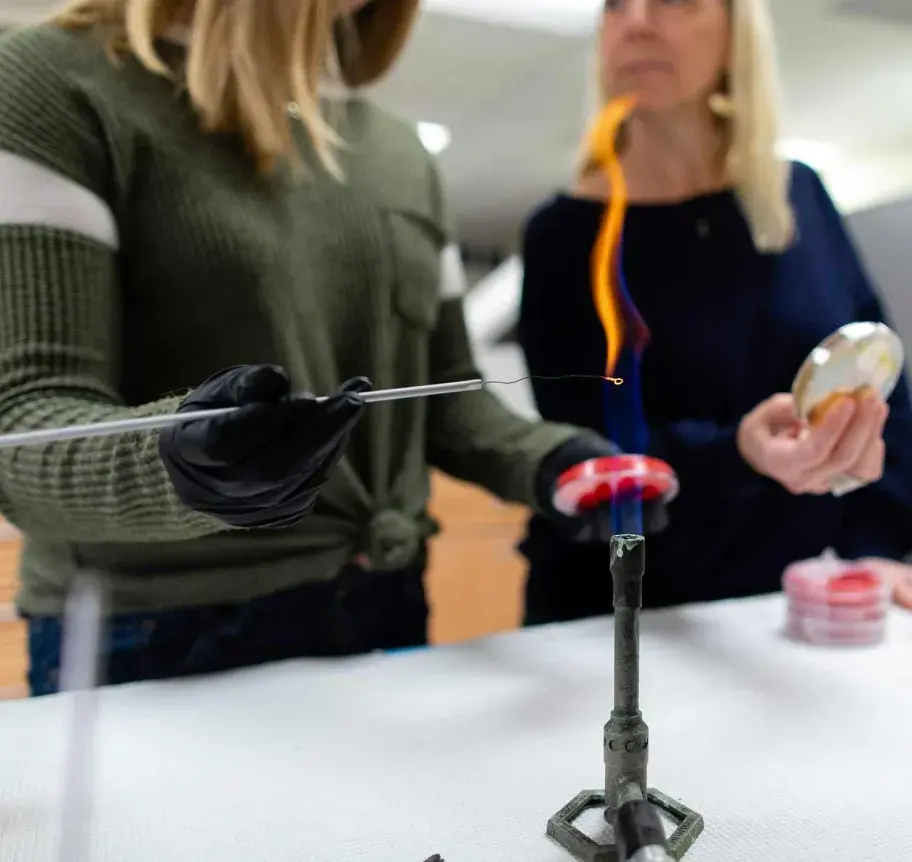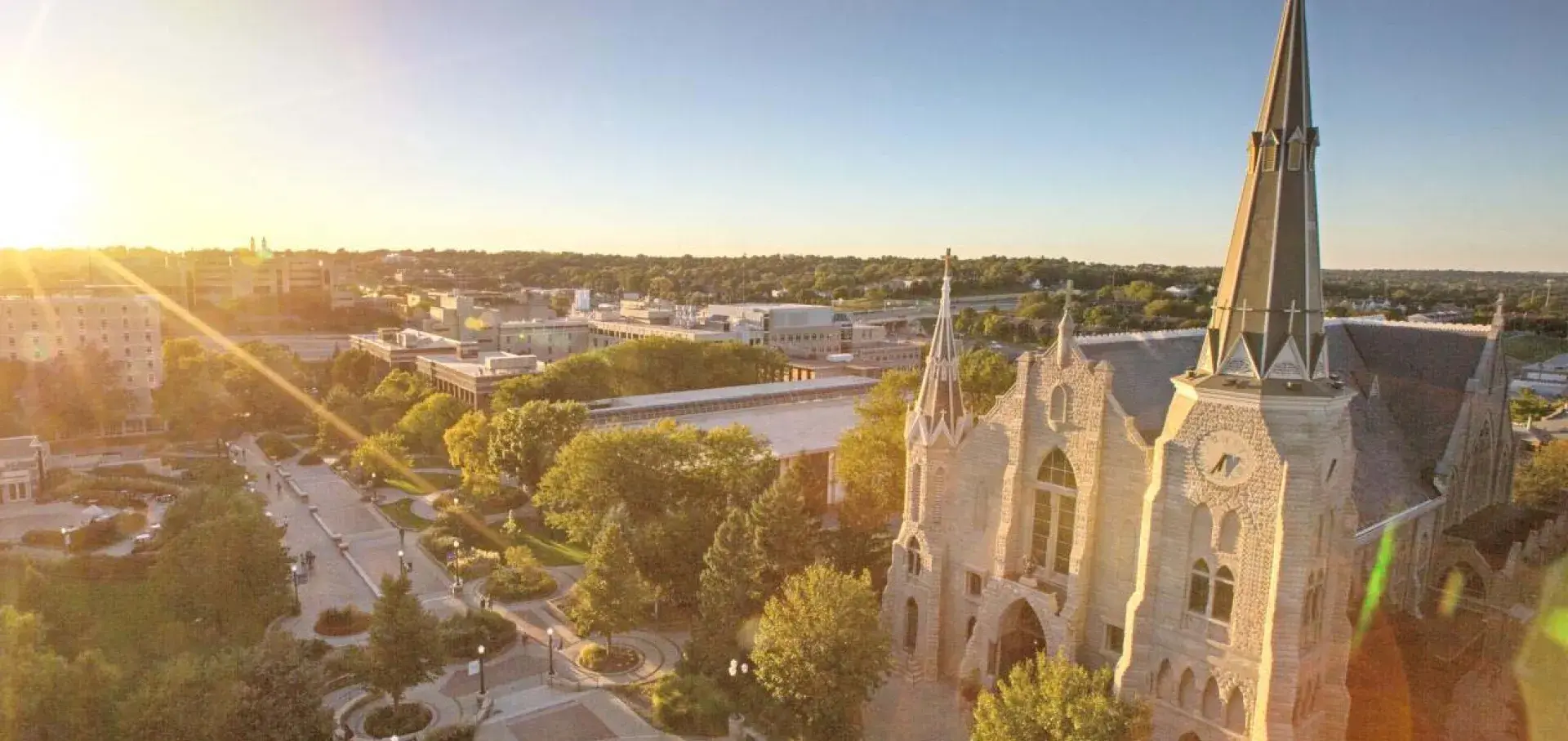
Chemistry Major (BS and BSChm Degrees)
As a chemistry or biochemistry major, you’ll build a foundation for a successful career in the health professions, research, industry, education and more. Creighton’s chemistry degree program offers close student-faculty collaboration and abundant opportunities for undergraduate research, preparing you for in-demand jobs and admission to graduate and professional schools.
Creighton offers a Bachelor of Science (BS) in chemistry and a Bachelor of Science (BSChem) in chemistry. Creighton’s BSChm program is endorsed and certified by the American Chemical Society (ACS).
Program Details
Program Goals
Creighton’s chemistry degree program is designed to provide you with an understanding of chemistry that is highly regarded by employers and graduate and health professions schools.
As a chemistry major, you’ll:
- Learn to problem-solve in unique and creative ways, using team-based and independent learning
- Be exposed to Creighton’s health professions programs in dentistry, nursing, medicine, and pharmacy and health professions
- Have opportunities to participate in faculty-mentored research, be published in scientific journals and present at national meetings
Courses in the Chemistry Curriculum
Creighton offers five different tracks within the chemistry major.
- BS Chemistry - Applied Chemistry Track
- BS Chemistry BS - Chemistry Track
- BS Chemistry Biochemistry Track
- BSChm Chemistry Biochemistry Track
- BSChem Chemistry - Chemistry Track
What careers can you pursue with a chemistry major?
An undergraduate chemistry degree is very versatile. You can pursue a variety of careers, including:
- Research scientist: Conducting experiments and research in areas like organic chemistry, biochemistry or physical chemistry.
- Chemical analyst: Analyzing substances to determine their composition, structure and properties.
- Pharmaceutical scientist: Working to develop and test drugs.
- Clinical research associate: Conducting research studies in clinical trials to test the effectiveness and safety of new drugs and treatments.
- Environmental chemist: Studying the impact of chemicals on the environment and developing strategies for pollution control and conservation.
- Teaching/Education: Becoming a high school or college-level chemistry teacher or professor.
- Toxicologist: Studying the effects of toxic substances and assessing potential risks to human and environmental health.
How Creighton Students Use Their Chemistry Degrees
About one-third of Creighton chemistry majors go directly to a health professional school in fields such as medicine, dentistry or pharmacy. Another one-third enroll in PhD programs in chemistry or chemistry-related disciplines (biochemistry, chemical engineering, environmental science). The remaining one-third work in chemistry-related fields, participate in organized volunteer programs (JVC, Peace Corps, Teach for America) or enroll in MBA or JD programs.
Recent graduates have taken jobs at organizations like:
- Alegent Creighton Health (CHI Health)
- Midwest Laboratories
- Boys Town National Research Hospital
- Teach for America
- American Red Cross
- Integrated DNA Technologies
- The Retina Group
- Henry Jackson Foundation
Recent graduates have pursued graduate or professional degrees at institutions including:
- University of Tennessee College of Pharmacy
- University of Nebraska Medical Center
- Purdue University
- Duke University
- University of Notre Dame
- Yale School of Medicine
Pre-Professional Scholars Program
Many Creighton students come here planning to pursue a professional degree. Our comprehensive pre-professional program supports those students and helps them reach their goals.
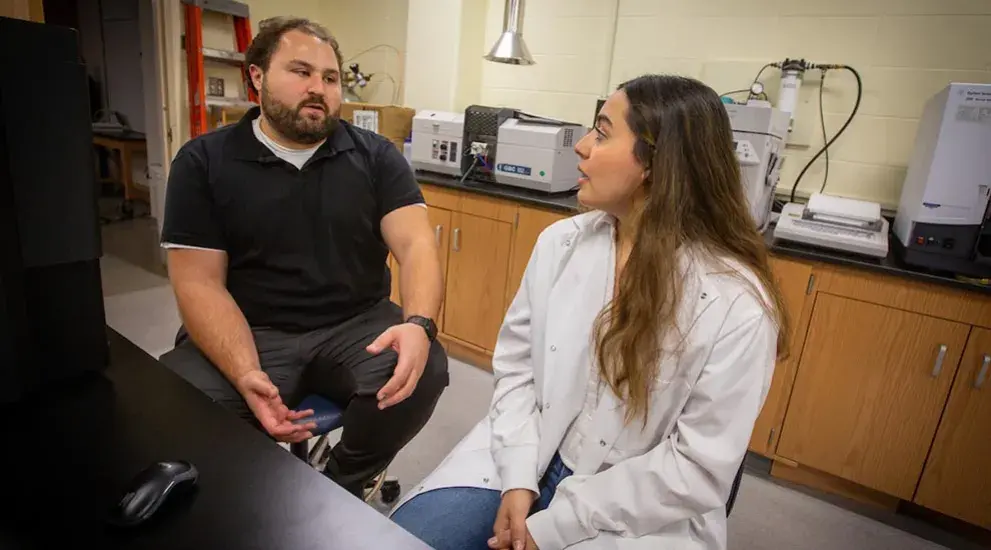
Frequently Asked Questions About the Chemistry Program
We make undergraduate research accessible at Creighton. Most Creighton chemistry majors perform research with faculty mentors, either in the labs of department faculty or in the labs of chemical scientists in other departments of the College of Arts and Sciences, the School of Medicine or the School of Pharmacy and Health Professions.
In addition, our chemistry majors have participated in undergraduate research at the University of Nebraska Medical Center and the Omaha Veterans Administration Medical Center, and in summer research at Creighton or in programs hosted by National Science Foundation-funded colleges and universities across the country.
The job outlook for chemistry majors is strong. Students who get an undergraduate chemistry degree can take many different paths. The Bureau of Labor and Statistics projects a strong demand for chemists in the coming years. Chemistry majors can also go on to pursue high-demand careers in healthcare, like medicine, dentistry and pharmacy.
Hands-on experience will help you hone the skills you learn in the classroom. Internships are a great way to gain real-world experience, and Creighton helps students in all programs access those opportunities. Creighton has connections to more than 17,000 employers with over 97,000 jobs and internship opportunities annually. On top of that, faculty members have connections locally and beyond, which can help unlock opportunities for students.
You’ll build foundational skills that can serve you in a variety of fields. Along with increasing your understanding of the academic side of chemistry, you’ll learn:
- Problem-solving and critical-thinking skills
- To work with a team and communicate well
- Laboratory techniques and the importance of safety
- How to effectively analyze data
- About ethics in science
- How to interpret scientific literature
- How technology and science intersect
The undergraduate admission requirements for high school students looking to study chemistry are the same as those in other majors. That said, there are some things you can do in high school to start down the chemistry road. You can:
- Take rigorous math and science courses in high school
- Focus on mastering mathematical concepts since math is foundational to chemistry
- Take part in science clubs and competitions
- Participate in lab work, if possible
- Build good study habits
- Explore chemistry-related careers, so you can start to think about what path you’d like to take
- Connect with mentors, like high school teachers or someone in the sciences
- Stay curious—it’s an essential part of science
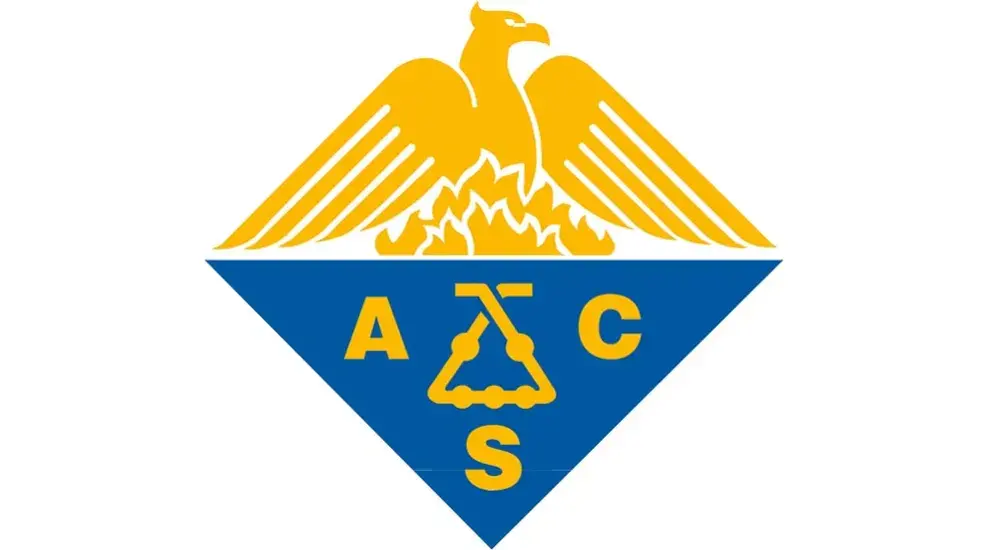
ACS Certified
Creighton is one of the nation’s largest producers of American Chemical Society (ACS) certified chemistry graduates. Creighton averages 30 graduates in chemistry each year, more than many larger schools.
Admissions Requirements
Creighton admissions are based upon:
- High school GPA
- ACT or SAT scores*
- Extracurricular activities
- Personal statement to demonstrate creative abilities not reflected in your transcripts
- Recommendation from high school counselor
- Honors sections and advanced placement courses will enhance a candidate’s application
*For students who are choosing to apply test-optional, ACT/SAT exam scores are not required at the time of application for admission.
Dates & Deadlines
Applications for the fall semester open on Aug. 1 of the prior year. For scholarship consideration, the earlier you complete your undergraduate application, the better. For up-to-date deadlines, visit our admissions page.
Tuition & Financial Aid
Tuition rates are updated each year. Visit our financial aid site to learn more about the cost of attendance.
Financial Aid
Creighton University’s Financial Aid Office administers over $200,000,000 in student aid each year from federal, state, institutional and private sources.
To help make your undergraduate studies at Creighton University more affordable, we encourage you to file the FAFSA to apply for financial assistance. A variety of scholarships are also available.




